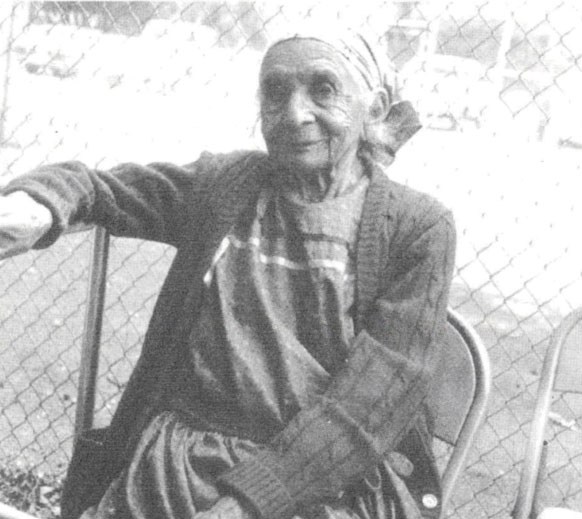Author: Brandon Goins
It is a noble undertaking to dedicate one’s life to educating others. On National Teacher’s Appreciation Week we are highlighting just a few of North Carolina History’s most revered educators.
 A trailblazer and icon of the American south, Dr. Charlotte Hawkins Brown was just eighteen when she established the Palmer Memorial Institute in Sedalia, NC, in 1902. The Palmer Institute was a day and boarding school that seeks to educate and mentor young African Americans in academics, etiquette, and religion. The Palmer Institute was truly remarkable for its time, as Jim Crow laws made it difficult for southern African Americans to gain access to education which was on par with white peers. The Palmer Institute closed in the 1970s, ten years after Dr. Brown’s passing in 1961. Dr. Brown’s home, which houses the Charlotte Hawkins Brown Museum, can be visited today on the Palmer campus in Sedalia.
A trailblazer and icon of the American south, Dr. Charlotte Hawkins Brown was just eighteen when she established the Palmer Memorial Institute in Sedalia, NC, in 1902. The Palmer Institute was a day and boarding school that seeks to educate and mentor young African Americans in academics, etiquette, and religion. The Palmer Institute was truly remarkable for its time, as Jim Crow laws made it difficult for southern African Americans to gain access to education which was on par with white peers. The Palmer Institute closed in the 1970s, ten years after Dr. Brown’s passing in 1961. Dr. Brown’s home, which houses the Charlotte Hawkins Brown Museum, can be visited today on the Palmer campus in Sedalia.
 Charles McIver’s mark on our state’s education can still be felt on the campus of UNC Greensboro, which was originally founded in 1891 due to the efforts of Edwin Alderman and McIver himself. Originally North Carolina State Normal and Industrial school, this school was put forward to educate teachers and mostly included female students. McIver was a strong advocate for the education of teachers, which at the time was a profession typically held by women. For that reason, many put McIver forward as an early advocate of the improvement of education for women.
Charles McIver’s mark on our state’s education can still be felt on the campus of UNC Greensboro, which was originally founded in 1891 due to the efforts of Edwin Alderman and McIver himself. Originally North Carolina State Normal and Industrial school, this school was put forward to educate teachers and mostly included female students. McIver was a strong advocate for the education of teachers, which at the time was a profession typically held by women. For that reason, many put McIver forward as an early advocate of the improvement of education for women.

In his time, Edwin Alderman was possibly the most renowned educator in North Carolina. A professor of history and philosophy at the University of North Carolina, Alderman would become president of UNC in 1896. After serving for four years, he would go on to serve as president of Tulane and later, the University of Virginia. In his time in North Carolina, he and Charles McIver established several teacher’s institutes across the state. Alderman was also instrumental in the development of Governor Aycock’s education initiatives.

Maggie Axe Wachacha was born in 1894, Maggie Axe learned to read and write in the Cherokee language and was mastering midwifery and healing by age ten. Wachacha dedicated the rest of her life to educating others in the Cherokee culture. An incredible asset to the survival of her people’s culture, Wachacha was honored with the Cherokee title of Beloved Woman in 1978 after serving as clerk of the Cherokee Tribal Council for over forty years. This high honor followed being given the Distinguished Women of North Carolina Award and named one of Newsweek’s 100 American Heroes in 1976. Maggie Axe, The Beloved Woman was dedicated to teaching and the survival of Cherokee culture until her death in 1993.

Emily Prudden, a Connecticut native, came to North Carolina in 1884 and established fifteen schools in Blowing Rock, Connelly Springs, and other small western communities. Deaf from the age of seventeen, Prudden was an admired educator in her time, working tirelessly to establish schools for all types of students. Included amongst these places of learning were schools specifically for African American students, notably Lincoln Academy in Gaston County for black females. Prudden devoted her life to education, never living in one community longer than two or three years, as she would relinquish control of her school after a period and go on to establish another school elsewhere.
At the core of each of these trailblazers is a trait that can be found in any educator. Our teachers and education leaders today value the growth and learning of future generations. Teaching is not just a career, but a dedication to forward-thinking and progress. Today’s educators are paving the way, as Dr. Brown and Emily Prudden have before them. Teaching is a career that should be appreciated every day, and today is a new opportunity to honor educators in our lives.

